

AGRICULTURE
Thirty agritech innovators to partake in UNU INRA’s INFoCAT initiative
Some 30 agritech innovators have been shortlisted to compete in the first stage of the United Nations University, Institute for Natural Resources in Africa’s (UNU INRA) Innovate for Clean Agricultural Technologies’ (INFoCAT) initiative.
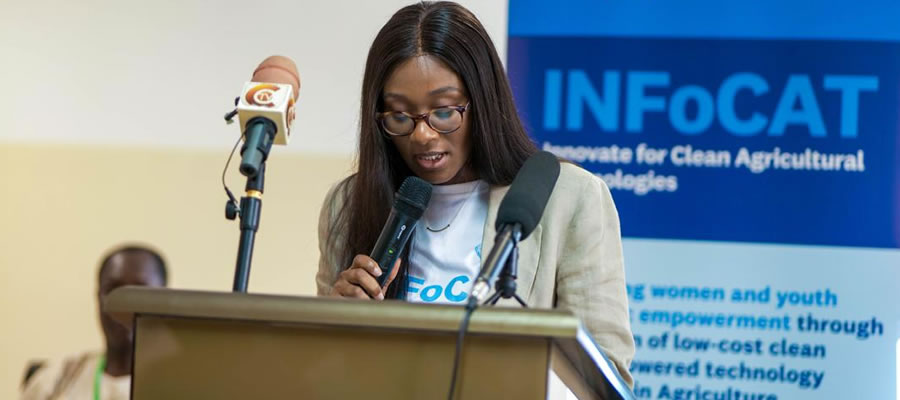
Date Created : 8/15/2024 : Story Author : Ghanadistricts.com
INFoCAT is an initiative that seeks to harness innovative solutions to support the development of affordable, labour-saving clean energy agricultural technologies.
The 30 will be reduced to 10 in the second stage after pitching their initiative that must focus on time saving, reducing drudgery of rural women in maize, cassava, groundnuts and rice production value chain.
Dr Fatima Denton, UNU-INRA Director, in a statement delivered on her behalf, said at the opening of a two-day workshop for the selected participants that INFoCAT would enhance women and youth economic empowerment in rural areas of selected communities in Ghana, Cote D’Ivoire, and Senegal.
The workshop sought to equip the innovators with the knowledge, skills, and networks to thrive in the space and to be an integral part of the success of the INFoCAT project.
She said, “…the future of agriculture lies in our ability to innovate and adapt to the pressing challenges of climate change, food security, and environmental degradation.
However, the success of these technologies depends on the people who develop, implement, and champion them-you, the green entrepreneurs.”
Dr Denton explained that bridging the gender gap in clean technology development and subsequently alleviating poverty would contribute to a more equitable and sustainable future.
She stated that clean agriculture technologies offered the continent the opportunity to contribute to addressing challenges in the agriculture sector and create new opportunities for growth, resilience, and prosperity.
“Your creativity, determination, and vision are critical to advancing sustainable practices and ensuring that they reach the communities and individuals who need them the most.”
Dr Ferdinand Tornyie, INFoCAT Project Coordinator, said the 30 selected innovators would be provided with a grant of USD 7,200 to develop their innovation and present it at an African contest.
“The best innovation on the continent will be offered an amount of USD34,000 to scale up the innovation,” he said.
Dr Tornyie noted that apart from the grants, the innovators would be supported with technical and regulatory capacity training to ensure that the product conformed to the global goal of green revolution.
“Women, especially those in the field of agriculture production and processing go through so much stress challenges. Our aim is to help ameliorate their suffering, fast-rack their activities and empower them economically,” he said.
Dr Tornyie said as part of the INFoCAT project, innovations would go through series of tests and validation as well as linked farmers who would use the technology, to try.
The agricultural sector plays a significant role as smallholder farming has proven effective in reducing hunger and poverty among rural populations.
Within this sector, small holder farmers, which make up about 80 per cent of farmland in Sub Saharan Africa, according to the FAO, are not only vital for reducing hunger and poverty among rural populations, but also can play a key role for transitioning to more sustainable forms of agriculture.
However, the lack of access to clean energy poses a persistent challenge for smallholder rural agriculture production, post-harvest activities, and agro-processing.
This energy constraint hampers the sector’s potential contribution to economic development and the achievement of sustainable development goals.
Addressing the clean energy and technology requirements of smallholder farmers is crucial for achieving a just transition and unlocking their full potential.
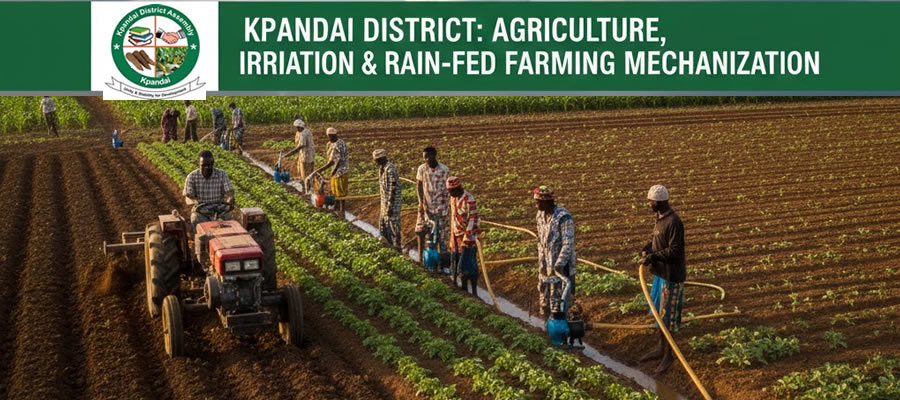
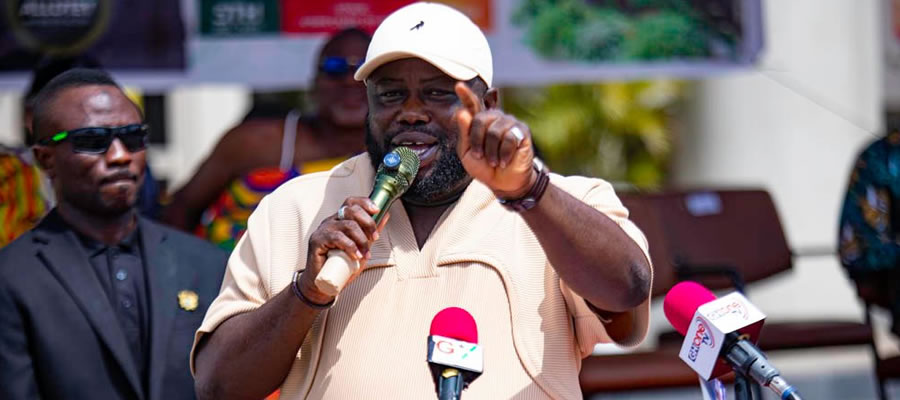
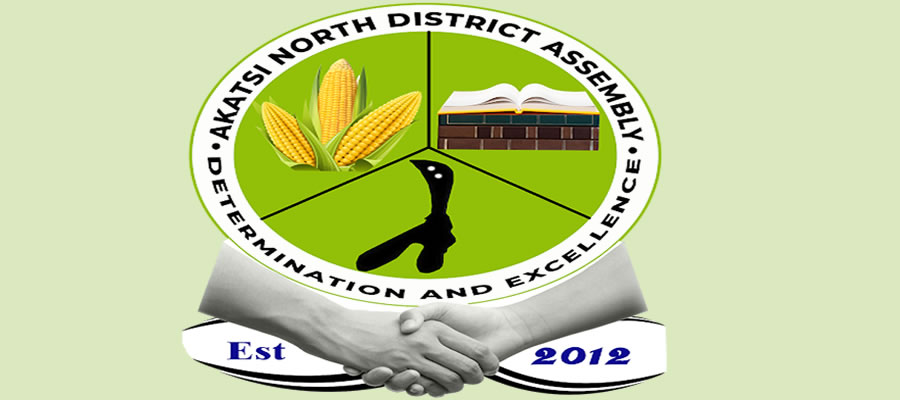
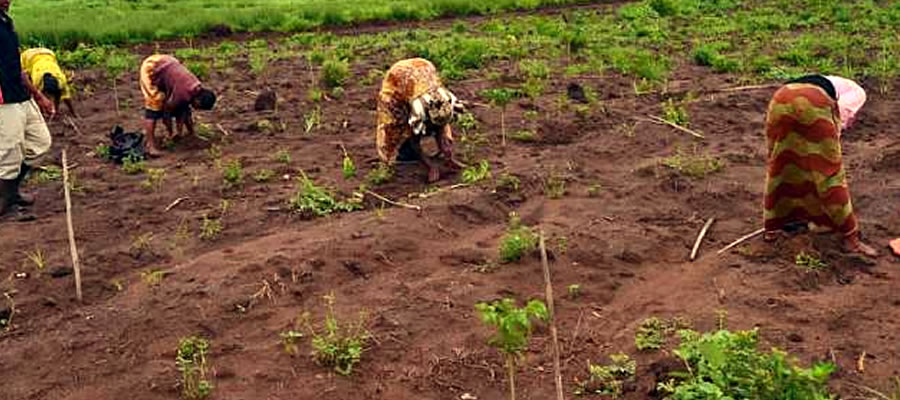
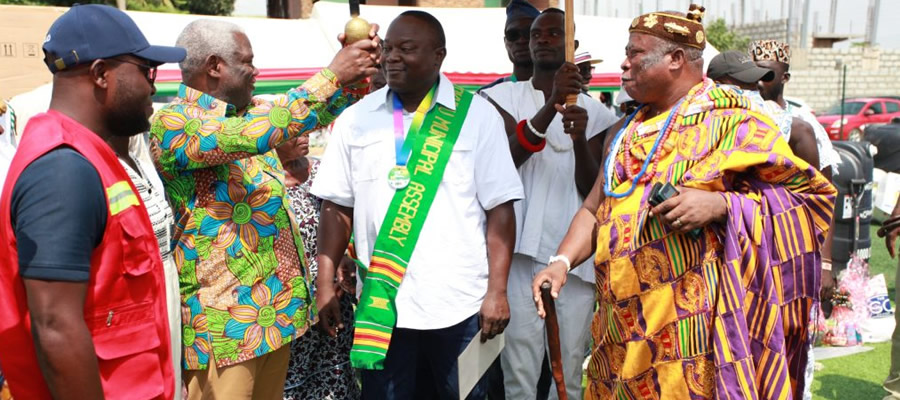
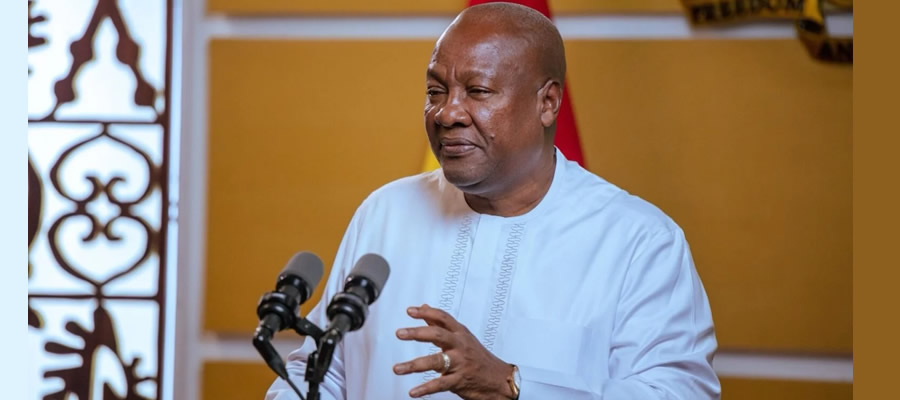
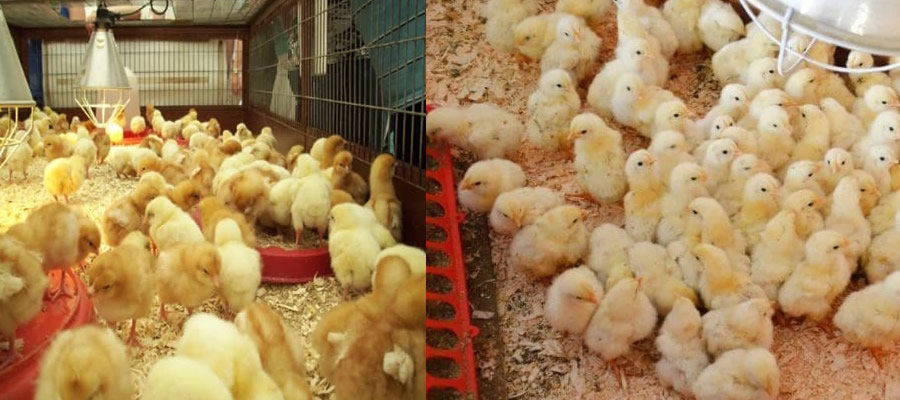
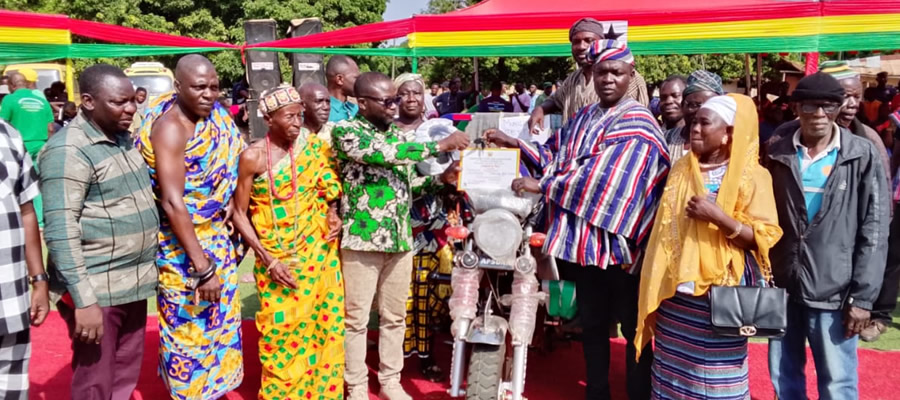
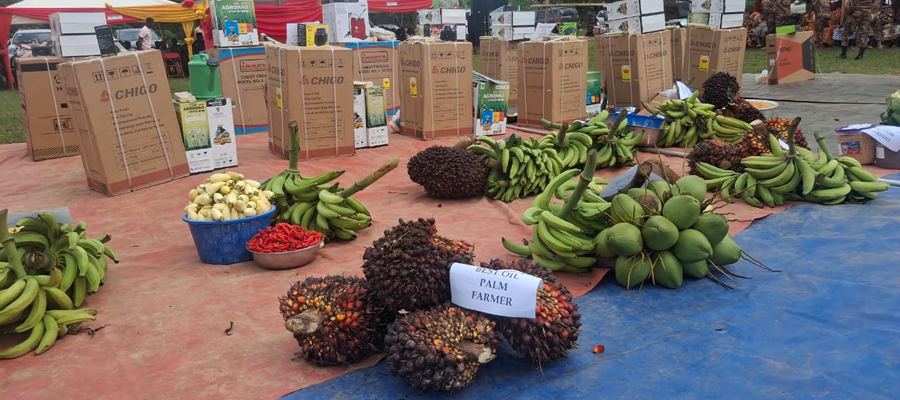
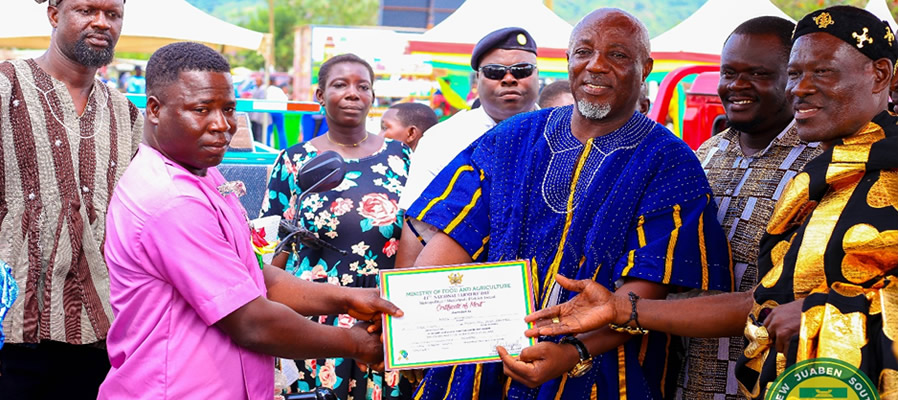
 facebook
facebook
 twitter
twitter
 Youtube
Youtube
 +233 593 831 280
+233 593 831 280 0800 430 430
0800 430 430 GPS: GE-231-4383
GPS: GE-231-4383 info@ghanadistricts.com
info@ghanadistricts.com Box GP1044, Accra, Ghana
Box GP1044, Accra, Ghana